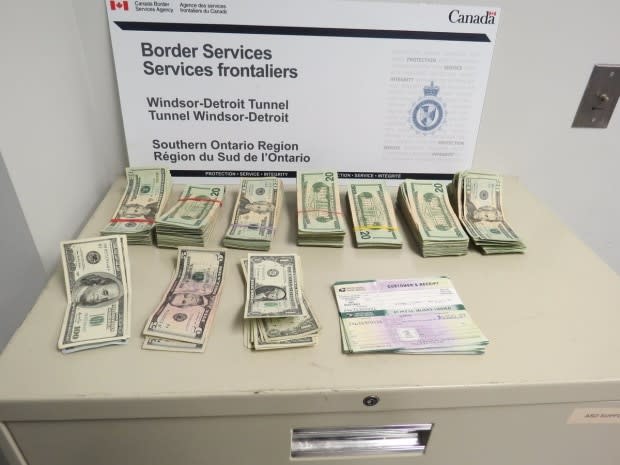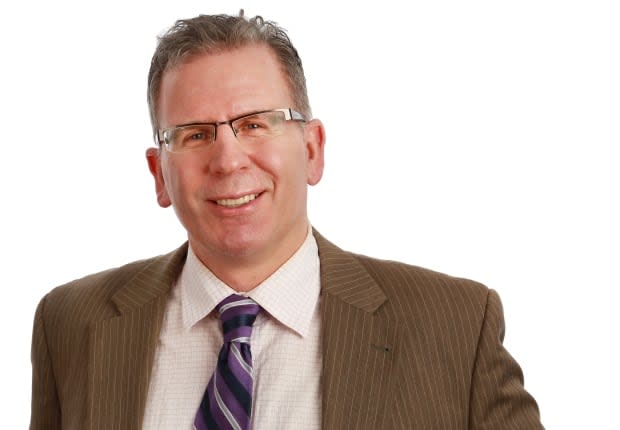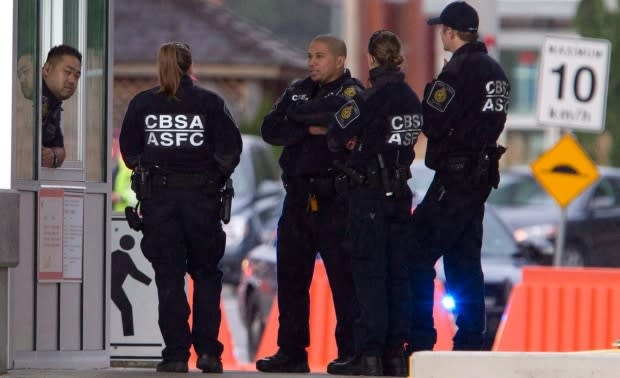Why millions in undeclared cash flows across the Canadian border each year
Every year, millions of dollars in cash enters and exits Canada stuffed inside envelopes, shirt pockets and bags.
But only a tiny fraction is moved by criminals. The rest is transported by average Canadians and visitors who are taking $10,000 or more into or out of the country.
Since 2017, $91,673,189 in currency has been seized by the Canada Border Services Agency, while only $9,168,022 confiscated during that time is suspected to be the proceeds of crime.
Many people are moving the money to support their family members who have just immigrated to Canada. The cash is often destined to be used for a down payment on a house or car.
Sometimes the money is being transported out of the country to assist family members in other parts of the world.
"Individuals are taking currency to family members overseas, often in a Middle Eastern country where there is less comfort with banks," said Cyndee Todgham Cherniak, a lawyer who founded LexSage, which deals with international trade and tax law.
"So, they don't want to wire transfer the money overseas. They bring the currency with them."
She said Canadians need to understand that carrying large amounts of cash doesn't mean someone is up to anything illegal. Cash can be viewed as the safest way to move money in some parts of the world.

Every year, Todgham Cherniak gets up to 40 calls from people who have had their money seized by CBSA and are trying to get it back.
It's not illegal to move $10,000 or more across the border, however, people have to declare that money before they cross. If they don't, it can be taken.
"The most common scenario is someone has not converted US dollars into Canadian dollars properly, said Todgham Cherniak. "So a person may have less than $10,000 US, but when converted into Canadian dollars it is more than $10,000 Canadian.
"We've had clients where they are off by $9.32 and the currency gets seized."
Most of the time, after a fine ranging from $250 to $5,000 is paid, the money is promptly returned, according to the CBSA.
But in some cases it can take months, even years, for people to get their money back, said Todgham Cherniak.
If the CBSA suspects the money could be used to fund terrorism or is the proceeds of crime, it may never be returned.

"In some cases it is the individual's life savings that they're bringing into the country or they're taking to their family," said Todgham Cherniak. "And sometimes they're left with not even enough money to pay for a taxi cab home."
Bashir Zummeit, Todgham Cherniak's client, is facing that hardship now.
Two years ago, the Toronto barbershop owner and father of six planned to travel to his homeland of Libya to visit his mother. He saved $5,000 over a period of years to take to his extended family.
Friends asked him to deliver money to their families as well. In the end, Zummeit had $19,000 US in cash to transport.
Zummeit said he didn't think he could safely transfer the money electronically because Libya's banking system has been in crisis for several years.
"There's no business, no money, and people fighting," he said. "And those families, they're lucky to have someone working outside who will send money to them so they can eat.
"They are suffering, they are desperate for money."

On March 31, 2018, he packed the money into envelopes, stuffed them into his jacket pocket and his bag, and went to board a plane to Libya. He didn't declare the money.
Todgham Cherniak said the process for reporting cash exports isn't easy.
People have to go to a CBSA office and fill out a form stating that they're going to be transporting more than $10,000. She said some of her clients haven't even been able to locate the CBSA office to do that.
"The process is really obscure and a lot of people don't understand that they have to report exports of currency, but they also don't know where to look for the CBSA office," she said.
Zummeit spotted a CBSA officer just before he got on the plane and told her he was carrying more than $10,000 US. The CBSA officer seized the cash.
The officer said the money wouldn't be returned until it was determined the cash wasn't going to be used for anything illegal.

Zummeit said he felt shame and embarrassment that he had let his family and friends down.
He hired Todgham Cherniak. They collected paperwork from Zummeit's friends to prove that the money came from legitimate sources.
They appealed the seizure, but the money still hasn't been returned.
Zummeit could use the funds. His barbershop has been closed for months because of COVID-19.
"Please have a heart especially after this circumstance, give me my money back," said Zummeit, "That I can use it for my family when I have six kids and I haven't been working."
The delays in getting the money back don't surprise criminology professor Stephen Schneider. He's been studying money laundering since the 1980s.
The Saint Mary's University professor said it can be difficult to separate money earned legitimately from money made from illegal activity.
"It takes a long time to conduct the kind of investigative background checks on individuals to determine if … the funds are linked to illegal activity," said Schneider.
"There's certainly not enough resources within the [CBSA] or the RCMP to do that kind of background check."

Schneider said most money travelling across the border is for legitimate reasons and he believes the majority of money the CBSA seizes comes from China.
The Chinese government has a $50,000 limit on the amount of money it lets its people remove from the country, said Schneider. But people sometimes take more than that.
Schneider said that is not a criminal offence in Canada, so it's not considered the proceeds of crime or money laundering.
"In my opinion, without a doubt, the largest source of cash that comes across the Canadian border, undocumented cash, unreported cash, would be capital flight from China," said Schneider.
Capital flight refers to the rapid movement of large sums of money or assets out of a country.
Schneider said the majority of that money goes to help Chinese immigrants, usually in B.C.

The CBSA would only say there are many reasons why a traveller would bring large sums of currency into the country, agreeing that most of the time it's for legitimate purposes.
Todgham Cherniak said the CBSA needs to change its ways.
She said it should give officers greater latitude to levy fines as opposed to seizing money. It should also speed up the appeals process, she said.
The CBSA said its officers are trained to detect deceit and other signs of criminality, and there are no plans to amend the current appeals process.
The agency has also started a new Trade Fraud and Trade Based Money Laundering Centre of Expertise. The centre will "identify, interdict, investigate and prosecute trade fraud," said a CBSA spokesperson in an email.
Zummeit only wants one change with the CBSA. He said it should make an exception for people trying to transport cash to help their families overseas.
"Our circumstances [are] completely different from anybody else," he said. "We took that money for our family. Nobody else. We have hearts and we have to help."
MORE TOP STORIES

